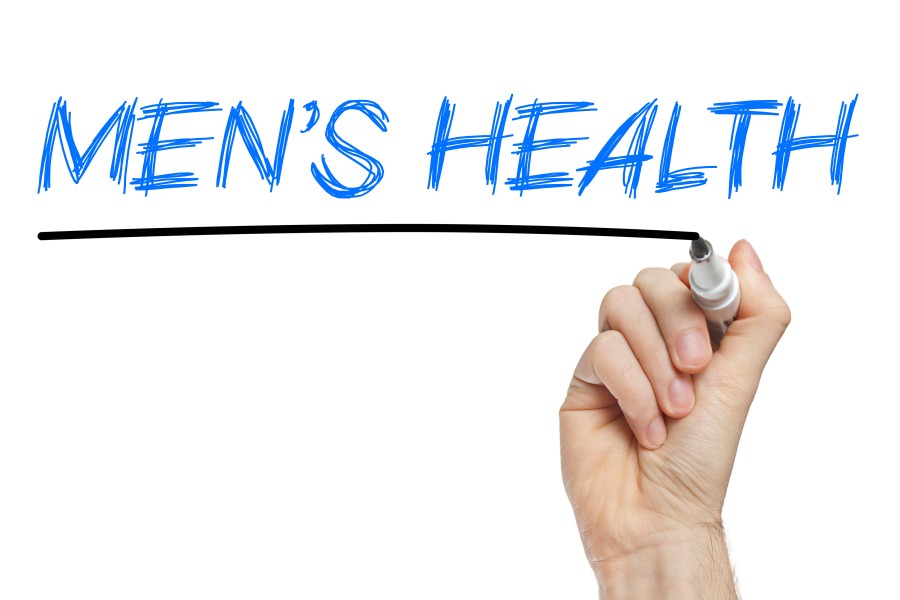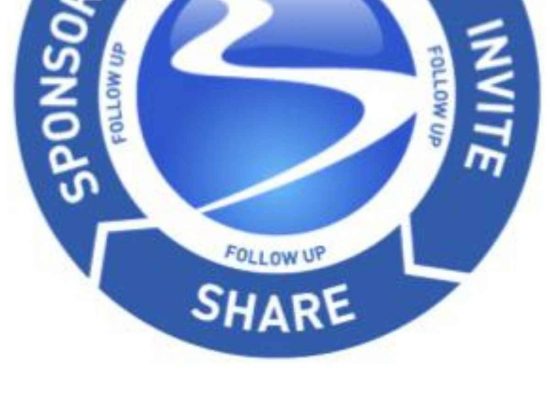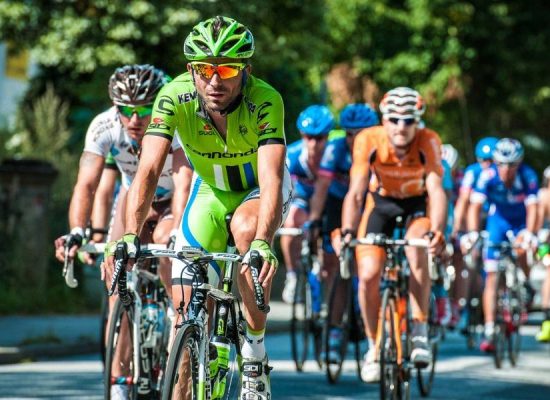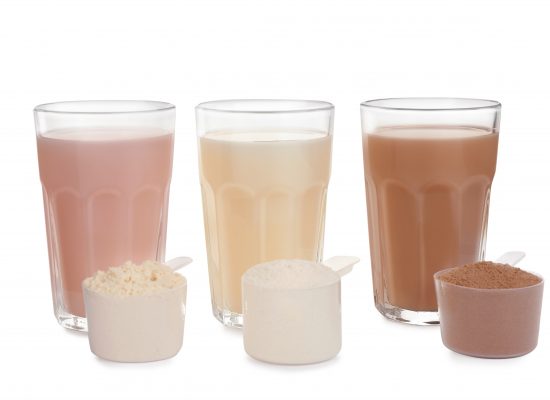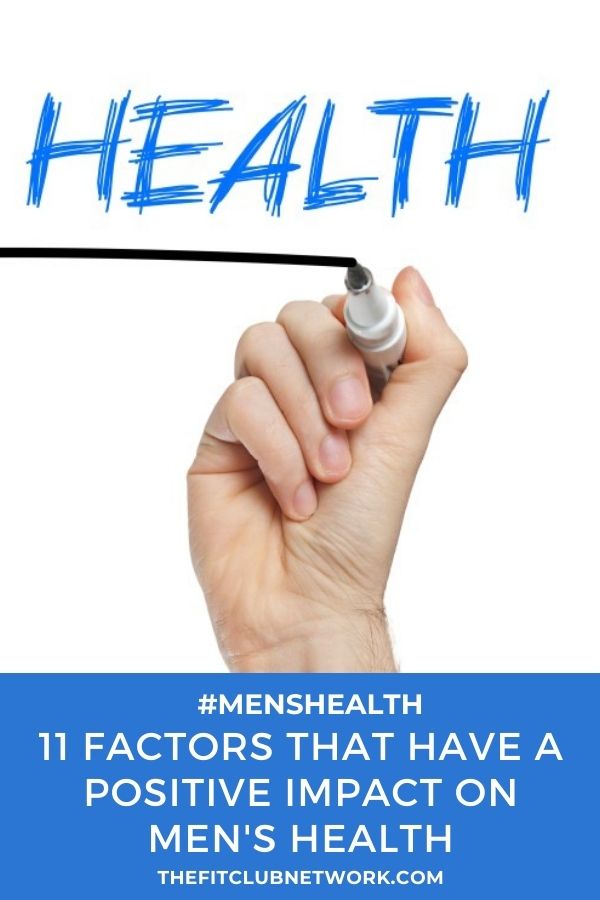
11 Factors That Positively Impact Men’s Health
In February of 2022, I turned 50. Major milestone, right? Everything changes all of the sudden, right? Well, no. Not really. It’s just a really good time for a deep dive into men’s health.
My Health Journey
Physically nothing really changed for me when I turned 50. It happened well before that.
Seven years ago, in 2015, I was backcountry skiing in British Columbia. My brothers and I were having a blast whizzing around in helicopters to find thigh deep champagne powder.
Then, I slammed into a tree.
I immediately thought I had broken my ring finger. The next day, my concern for my finger had been vastly overshadowed by the extreme pain in my left shoulder. A doctor on the trip with us did some basic range of movement tests and told me he didn’t think anything was broken, but I had clearly hurt myself.
And, so the downward spiral began.
I mostly ignored the situation. I kept working out. I was doing Body Beast at the time and didn’t want to stop. I was going through a lot of challenging life changes and I didn’t want to waste time with an injury. I thought I’d just tough it out.
RELATED | Body Beast Workout
Then, I started having back pain in my thoracic spine. That’s sort of the upper back area between the shoulder blades. That morphed into what felt like electrical shocks traveling down my left arm to my fingers that made me feel like The Emperor from Star Wars…except not powerful and I couldn’t control it.
I could not sleep. Every night around 2 am, I would have to lay on the floor with a foam roller to release the muscles and stop the pain. Basically, taking on more pain to relieve the pain in between recycling empty bottles of Motrin.
It finally got to a point where I just couldn’t deal with it and I sought some help.
I started with acupuncture and physical therapy. They both worked to relieve the pain, but I was advised not to lift weights. So, I just didn’t. For almost five years, I didn’t touch my weight set. I rode my bike and did a lot of other things that didn’t bother my shoulder. I was fairly active, but I wasn’t lifting weights and I wasn’t working out at a high intensity.
Then, I turned 50. Like I said, turning 50 didn’t change my body. It changed my mind.
I didn’t like the way I felt. I didn’t like the way I looked. I didn’t like a lot of things. My motivation to exercise was about the only thing lower than my overall energy level.
Thankfully, I’m surrounded by amazing people. One of them, my buddy Jimmy and I were talking about some men’s health issues, including bone density, muscle loss and the big T word (Testosterone).
Was I where I was because I was 50? Was it the injury? Was it my hormones? How did I go from a five or six workouts per week guy to almost zero?
The answer was that it was a combination of all of those things.
The injury is under control. I stretch and do mobility work almost every night and, unless I sleep funny, it’s pretty much fine. There are a few rotational things, like swimming, that I just avoid.
I started doing workouts on Beachbody On Demand using light weights and slowly worked my way back to being able to lift heavier (an ongoing battle).
So, that leaves us with age. And, one of the things you have to consider as a 50 year old man is hormone levels.
I’m no expert here—and, I’m not even playing one on the internet. Instead, I want to introduce you to Andrew Huberman, Ph.D..
It’s funny how when you start to think about a certain thing that it starts appearing in your life. Think about buying a specific model of new car…don’t you start seeing that car everywhere?
Well, one day I was walking the dog and listening to Joe Rogan. His guest was Andrew Huberman and he was talking about men’s health, specifically with respect to hormones.
Men’s Health, Testosterone & Testosterone Replacement Therapy (TRT)
Andrew Huberman, Ph.D. is a neuroscientist and tenured Professor in the Department of Neurobiology at the Stanford University School of Medicine. He hates this term, but I’ll use it anyway—he’s a “bio hacker.”
He hates the term because he doesn’t believe you should have to “hack” any of this. OUR BODIES ARE DESIGNED TO PRODUCE HORMONES LIKE TESTOSTERONE. That’s literally what it does.
Unfortunately, we can create environmental circumstances and stressors that weaken that system. The good news is that we can also create environmental circumstances and, yes, stressors (like weights) that restore the system.
As men age, our bodies slowly produce less natural testosterone. And, there are a lot of things we do that make that worse. So, I started to do some research on men’s health and hormones.
At first, I thought I’d just go the TRT route (Testosterone Replacement Therapy) and maybe consider HGH (Human Growth Hormone). Seemed easy. After all, you can get everything you need from all the Facebook ads that are targeting you based on your age (which is a lot if you are 50).
But, I dug a little deeper.
There are TRT clinics and doctors that are great. No doubt about it. But—this should not be construed as any sort of criticism of that industry—they are EXPENSIVE.
There are also TRT and growth hormone providers that are not so great. They don’t provide the same level of care, which is why they are cheap and the effects can be devastating.
Watch this video for more info on the medical risks of TRT:
Remember, I’m not a doctor. Just a guy who cares about his health and has found ways for years to improve it without medications.
I still haven’t ruled it out, but I decided to try a more holistic approach and see what I could do on my own by changing my environment, stress (reducing emotional stress and increasing physical stress through exercise), recovery, and supplements.
So far, it’s working.
I have way more energy. My workouts have improved dramatically (see below) and I’ve lost a little weight. Haven’t lost a ton, but that’s because I’m more focused on building muscle now. I like to say I’m just moving the weight from my waist to my chest and shoulders. (More on exercise below.)
Optimizing Testosterone by Dr. Andrew Huberman, Ph.D.
In this podcast, Dr. Huberman does a deep dive on how hormones impact men’s health. Now, I’m going to warn you, it can get very technical. VERY. Don’t get lost in the details. Focus on the recommendations.
If you are a woman, and you’ve gotten this far, you might find it interesting as well, because he does discuss estrogen and menopause.
There is also extensive discussion of sexual behavior between men and women, so if that’s going to freak you out, well, you probably aren’t reading this anyway.
11 Factors That Impact Men’s Health
Here’s a summary of what I’ve learned and what I’m doing in regards to men’s health.
There is a lot here. I’ll be honest and let you know it’s mostly for me to go back and reference. I hope you find it helpful. Some of this I have been doing for years, others are new. I have found them all to be helpful.
This isn’t a static list; I’ll add to it as I find, research and implement different things in this space. There is always room for improvement.
1. Nutrition
We talk a lot about nutrition in our blog, so I won’t go too far into it.
I’ll just say that I generally eat pretty healthy. I consume Shakeology with some other supplements added (see below) daily.
RELATED | Learn About Shakeology
I also do intermittent fasting. My eating window is from 11 am to about 7 pm (whenever dinner is).
That can freak people out. I’ve been doing this for years and I don’t even get hungry now until about 10:30 am. I rarely eat anything after 7 pm. “Dinner and done,” as Ilana Muhlstein would say.
Hopefully, you know us well enough to know how we feel about nutrition. (If not, do spend some time checking out our blog…there is some seriously helpful info there.)
So, let’s move on to the other 10 factors that impact men’s health.
2. Competition
Competition is a sneaky one, but it’s something to look at with respect to men’s health.
I’ve always been very competitive—to the point where it turns some people off and I have had to learn to control it, because I would get really angry when I lost.
When I started to understand that it isn’t the winning that helps with testosterone production (and stress relief), but the competition itself, things really changed.
I’ll make whatever I can into a competition, even if it’s just with myself. These little things are very effective and the people around you don’t even need to know they are competing with you. It’s only about you knowing it.
You can bet that if you are on the road with me and you are on a bike, I’m trying to pass you and stay ahead of you, whether you know it, or care, or not.
3. Sex
This whole hormonal system is designed to promote sexual activity. So, have more sex! Make it a competition if you need to lol. Nuff said there. I’ll let Dr. Huberman make the point for me.
4. Sleep
My wife will tell you that I snore. Sadly, it’s true. Unless I’m sick, it’s usually because I’ve had a few drinks and it doesn’t happen every night, all night.
Sleep apnea is an extreme form of snoring. Both equate to a buildup of carbon dioxide in the body because the breathing is inefficient. In men, apnea appears to be related to lowered testosterone and increased estrogen.
Here’s a good video to learn more about sleep apnea and its impact on men’s health:
Because deep sleep is so vital for both my wife and I, I wear a Breath-Right strip on my nose almost every night. It just ensures that when I’m asleep, my body is exchanging carbon dioxide and oxygen efficiently by breathing through my nose and not my mouth and my wife appreciates it because it means I’m not snoring.
We also have a Sleep Number bed that provides me with some analytics on my sleep that I have found helpful.
I use an orthopedic pillow that I’ve used for about 20 years. I just sleep better with it and don’t wake up with pain in my neck or shoulders. Well worth the investment. I often travel with mine.
Getting to sleep can be hard for me. I like to watch movies or sports at night, so I installed a Flux app on my MacBook, which gradually blocks blue light starting at sunset. It’s not the most appealing picture when it is fully on, but at the end of the day what matters is my sleeping.
If I’m really struggling to get to sleep, or I’m coming off a horrible night and know I need to make it up, I will take a little bit of Valerian Root with some chamomile tea.
If I’ve got a lot of stress going on, I’ll add a few drops of Kava Kava Root. Good night…
I avoid things like pain killers with “PM” in the name and other over the counter sleep aids. They all leave me feeling really sleepy and generally stupid the following day.
5. Breathing
I focus on breathing through my nose and not my mouth, particularly during exercise.
Dr. Huberman goes into this in some depth, but there are multiple benefits beyond testosterone production. Breathing issues (both awake and asleep) can increase cortisol and excessive cortisol can really impact testosterone production and increase estrogen.
When it comes to men’s health, nose breathing is much more optimal than mouth breathing.
6. Stress & Anxiety
Stress and anxiety creates cortisol, which slows testosterone production. Exercise relieves stress and increases testosterone production. See how circular all this is?
So…maybe exercise. There is more to this.
I’ve never been a big meditation person, but it has helped in times of extreme stress. I find my animals really chill me out. We have a Vizsla named Fin and an orange tabby cat named Leon Jaworski (bonus points if you know who that is). Just spending a little time with them relaxes me.
I’ll talk a little about gardening in the “Light” section below, but it is also a huge stress reliever for me.
RELATED | 3 Week Yoga Retreat
7. Exercise
Cardiovascular exercise, combined with nose breathing, makes that system more efficient. Again, a more efficient breathing system, means better carbon dioxide/oxygen exchange, which impacts testosterone production.
I do a cardiovascular workout two or three times a week, typically on a bike. Either my MYX indoor bike, or my Specialized S-Works Roubaix out on the road (humble brag for the cycling community 😉).
I am not doing long rides any more. The impact on testosterone at this point in my life makes it just not worth it any more.
Typical cardio sessions—indoor or outdoor—are 30 minutes to 1 hour. Most of my workouts are strength-based now. I’m a little conscious of the shoulder injury, but I am working toward lifting heavy loads doing low reps.
I will often follow a weight training session with a 15 minute spin class.
These workouts—four days a week minimum—are HARD and I’m really spent after them. I’m going all out. There is a great section on this in the Huberman Podcast about the importance of lifting first and then doing cardio (think LIIFT4).
8. Light
Unless it is raining, every morning I pour myself a cup of coffee and go outside without sunglasses on.
According to Dr. Huberman, there is robust research showing exposing the eyes to sunlight, particularly early in the morning and without sunglasses, increases dopamine, which promotes testosterone production in men and estrogen production in women.
Plus, it gives me a chance to check on the garden, which is a very calming behavior for me, reducing stress and anxiety and the connected cortisol production.
We grow all kinds of stuff. Just about every vegetable you can think of and we have apple, guava, mango, papaya, peach, and citrus trees, and a huge thornless blackberry that is a major project.

9. Heat/Cold
I don’t have a sauna or a cold plunge. I do, however, have a bath tub with a shower attached to it.
At least four times a week, you’ll find me in the early evening soaking in a hot tub after a long day. Again, a stress reducer and a recovery tool.
At the end of that hot bath is a VERY cold shower. We also live near the Pacific Ocean and surf whenever we can. It is COLD.
These hot/cold sessions are excellent for men’s health as they increase vasodilatation—the dilation of the blood vessels—which lowers blood pressure and allows the body to move blood more easily)
RELATED | The Benefits of Cold Showers & Intermittent Fasting
The vascular system is the transport mechanism for all these hormones and so much more, so exercising and heat/cold sessions make that system more efficient.
This “reset” also allows me to show up for dinner feeling refreshed and aware, so I’m the best I can be for my wife. Again, a huge potential stressor that if properly cared for results in MORE testosterone production and less cortisol. Back to the circular nature of these systems.
10. Inflammation
Ok, generally inflammation is bad and is a hot topic for men’s health, as well as women’s. There are a lot of studies linking inflammation to cancers. This is why breast and testicular cancers are so common.
One caution here is that cells that replicate are prone to cancer and those cells thrive on androgens. We’ll have more on inflammation in another post, but it’s an important piece of this puzzle and a big part of why I decided against TRT.
11. Supplements
Supplements can help boost men’s health, but there is a lot of nonsense “bro science” out there.
For the last four months, I’ve been taking a mixture of a few things, including Maca, Suma, Tribulius, Ginsing, Vitamin B Complex and Vitamin B-12—along with my daily Shakeology and then Fadogia Agrestis, Horny Goat Weed (love these names) and Tongkat Ali (AKA Longjack) with my pre-workout drink.
Fair warning—the Longjack really tastes like hell. You’ll want to brush your teeth with a blowtorch after you take it. Get the capsules. I’ve been taking this for a few months and I do feel like it helps, but if I wasn’t doing the other things, I doubt I’d see much change.
That’s the basic supplement list that I’m taking right now.
RELATED | What is a Supplement Stack & What Do Ours Look Like?
Earlier I mentioned how when you focus on something, you tend to find it. The saying is “where attention goes, attraction flows.” I believe this is absolutely true in this regard.
When I’m doing small things, like going outside to expose my eyes to natural light in the morning, I’m thinking about why I’m doing that and I’m thinking about my health. My attention flows in that direction throughout the day as a result, so I make sure to get my nutrition in, I make sure to hit my workout, I make sure to recover.
That hot bath/cold shower sets up the evening for me in the very same way.
All of these systems are circular and integral to men’s health — they all build on each other OR they all tear each other down.
It is up to you to build the routines that will work for you. I’m constantly looking for new ways to integrate things that work into my daily routine.
If you’ve got something that works for you, I would love to hear about it. Click on the button below to reach me through Facebook, fill out the form on our contact page, or shoot me an email at INFO@THEFITCLUBNETWORK.COM.

